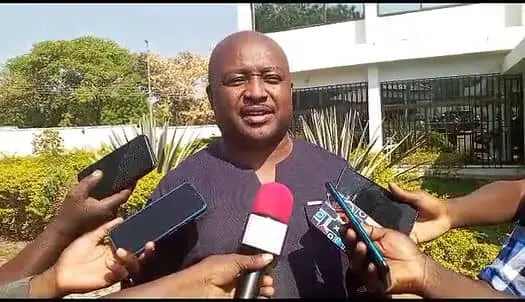The recent controversy surrounding Upper West Regional Minister, Charles Lwanga Puozuing, highlights the delicate balance of religious freedom and public discourse in Ghana. His alleged remarks, captured in a widely circulated video, questioned the practicality of observing the five daily prayers central to Islamic practice. The Minister reportedly suggested that only those without demanding jobs could realistically adhere to this ritual, proposing that prayers could be combined for convenience, as God would be understanding. This perceived trivialization of a core tenet of Islam sparked immediate and widespread condemnation from the Muslim community, raising concerns about respect for diverse religious beliefs.
The Office of the Upper West Regional Chief Imam responded swiftly and decisively, issuing a public statement that characterized the Minister’s remarks as insensitive, arrogant, and inflammatory. The statement underscored the deep offense taken by the Muslim community, emphasizing the importance of respecting religious practices and refraining from making disparaging comments about other faiths. The Chief Imam’s demand for a full retraction and public apology within 72 hours reflected the gravity of the situation and served as a clear indication of the Muslim community’s united front against the perceived disrespect. This prompt and firm response underscored the importance of accountability for public figures, particularly when their statements touch upon sensitive religious matters.
Mr. Puozuing’s actions in the wake of the controversy demonstrate the potential for reconciliation and dialogue following instances of religious insensitivity. Before the 72-hour deadline imposed by the Chief Imam expired, the Minister, accompanied by a delegation, embarked on a series of visits to various religious leaders. This proactive approach signalled a willingness to address the concerns of the Muslim community and seek forgiveness for the perceived slight. The act of personally visiting religious leaders, rather than issuing a perfunctory statement, demonstrated a commitment to genuine reconciliation and respect for the affected community.
The Minister’s apology tour represented an attempt to mend the fractured relationship between his office and the Muslim community. By engaging in direct dialogue with religious leaders, Mr. Puozuing aimed to demonstrate his remorse and commitment to fostering religious harmony within the region. The success of such efforts, however, depends on the sincerity of the apology and the willingness of all parties to engage in open and respectful communication. This incident serves as a valuable lesson in the importance of considering the potential impact of public statements on diverse religious communities.
This incident underscores the broader implications of religious discourse in a pluralistic society. The controversy surrounding Mr. Puozuing’s remarks highlights the need for sensitivity and respect when discussing religious beliefs and practices, particularly those different from one’s own. Public figures bear a particular responsibility in this regard, as their words carry significant weight and can shape public perception. Promoting religious tolerance and understanding requires a conscious effort to avoid language that could be perceived as dismissive or disrespectful of other faiths.
The swift response from the Muslim community and the subsequent actions taken by Mr. Puozuing ultimately demonstrate the importance of accountability and the potential for reconciliation in the face of religious misunderstandings. This incident serves as a reminder of the crucial role that dialogue and mutual respect play in fostering peaceful coexistence within diverse religious communities. While the controversy undoubtedly caused offense and generated tension, it also provided an opportunity for learning and growth, highlighting the ongoing need for continued interfaith dialogue and understanding in Ghana. The ability to address such sensitive issues constructively and pursue reconciliation is essential for maintaining social cohesion and promoting a harmonious society.














